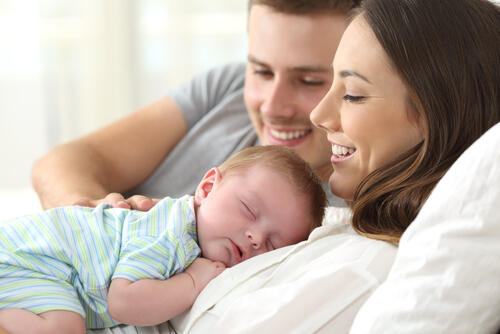IHT efficient business gifts
It’s well known that the value of a business escapes inheritance tax (IHT) if it meets the conditions for business property relief. But if it's a family business there are other ways it can be used to reduce the estate for IHT. What are they?

Reducing the estate
Most people are aware that if they make a gift to an individual, say a family member, potentially it can affect the inheritance tax (IHT) payable by their estate if they die within the following seven years. That is, unless the gift is less than the annual IHT exemption (£3,000 for 2021/22) or one of the various exemptions, such as that for gifts to a spouse or civil partner, applies.
Disposition or gift?
A disposition from an estate is the umbrella term for any event that removes value from one person’s estate to another’s. This includes gifts but also transactions which aren’t intended as gifts but nevertheless reduce the value of the estate. For example, the cost of maintaining and educating children. The rules ignore some types of disposition. Two such exceptions relate to business transactions.
Tax-deductible business expenses
A disposition is ignored if it’s a deductible expense, for either income or corporation tax purposes, incurred by the business, For example, salary or benefits in kind provided to an employee.
Paying a family member from a business is not only tax deductible from profits, subject to the usual rules, it immediately reduces the estate for IHT purposes.
Conversely, paying a family member an excessive wage might result in HMRC refusing a tax deduction for some of it. This would also mean that the disallowed amount counts as a non-exempt disposition for IHT purposes and so potentially affects the IHT on the estate for up to a further seven years. However, there’s an escape from this catch.
Employer pension contributions
Payments from a business to an employee’s pension scheme or retirement fund also don’t count as dispositions for IHT purposes. While they might already not count as dispositions because of the tax-deductible business expense rule, even if they aren’t tax deductible, say because they exceed what HMRC will accept, this rule ensures that they don’t count.
Employing family members in a business and paying significant pension contributions for them can be doubly tax efficient. It reduces both the taxable profits of the business and the estate for IHT purposes.
Pros and cons for beneficiaries
Another possible advantage of paying into a pension fund for someone who will be a beneficiary of the estate is that they won’t have to wait for the owner to die before they can get their hands on the money. The rules for registered pension schemes currently allow individuals to access their pension savings when they reach 55 (increasing to 57 in 2028). Of course, if the owner were to die before they reached 55 they would be waiting longer for the money than if it had been left it to them in a will.
Related Topics
-
Cut your losses to get a tax refund
You invested in a company that’s now in dire straits and your shares are worth next to nothing. Selling them isn’t an option so how do you go about getting some tax back on your bad investment?
-
HMRC updates advisory fuel rates from 1 March 2026
HMRC has published the latest advisory fuel and electric rates (AFRs) for company cars, effective from 1 March 2026. Several rates have changed since the previous quarter. What should employers be aware of?
-
5 April deadline approaching for key tax relief claims
With the end of the 2025/26 tax year now less than seven weeks away, business owners and company directors should remember that several valuable reliefs and elections must be made before 5 April. Which opportunities are about to close?